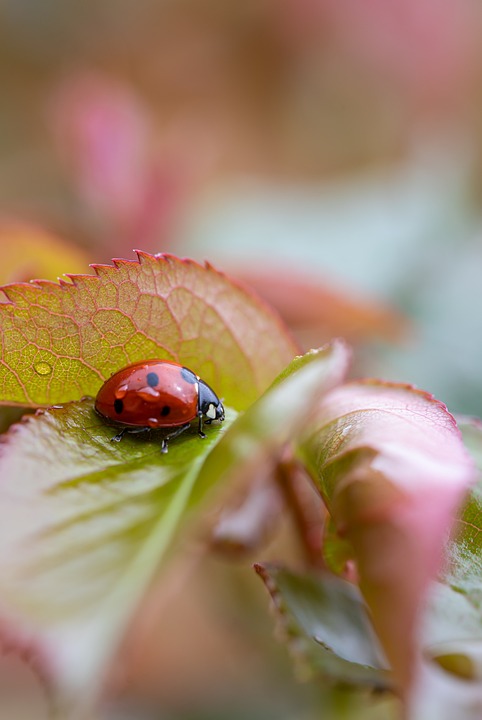In an era where sustainable and eco-friendly solutions are gaining prominence, the quest for effective pest control methods has led many to explore natural remedies. Herbal solutions have been touted as a safer alternative to conventional pesticides, promising less harm to the environment and human health. But do they deliver the desired results? This article delves into the effectiveness of herbal remedies for pest control, examining their pros, cons, and applications.
The Appeal of Herbal Remedies
The use of herbs for pest control can be traced back to ancient civilizations, where natural materials were employed to repel or eliminate pests. The appeal of these remedies is multifaceted:
-
Safety: Many commercial pesticides contain harmful chemicals that pose risks to humans, pets, and beneficial insects. Herbal remedies often present a safer alternative, with fewer adverse health effects when used properly.
-
Environmental Impact: Natural remedies reduce the environmental footprint compared to chemical pesticides. They’re biodegradable and often non-toxic to the ecosystem when applied correctly.
-
Sustainability: The cultivation of herbs for pest control can contribute to sustainable agricultural practices. By reducing reliance on synthetic chemicals, farmers can promote a healthier farming ecosystem.
- Cost-Effectiveness: Home-grown herbs can be an affordable solution for pest control, especially for those who garden or have access to local herb markets.
Common Herbal Remedies for Pests
Several herbs have garnered attention for their pest-repelling properties:
-
Neem: Extracted from the seeds of the neem tree, neem oil is well-known for its broad-spectrum pest control properties. It disrupts the life cycle of insects, effectively reducing their populations.
-
Peppermint: The strong scent of peppermint is a natural deterrent for various pests, including ants, spiders, and mosquitoes. Peppermint oil can be diluted with water and used as a spray.
-
Lavender: Beyond its delightful fragrance, lavender is known to repel moths, fleas, and mosquitoes. Planting lavender in gardens can act as a natural barrier against these pests.
-
Rosemary: This herb is not only a culinary favorite but also serves as a natural insect repellent. Its high concentration of essential oils makes it effective against various pest species.
-
Garlic: Garlic’s strong smell works wonders against a range of insects. Garlic sprays can be made easily at home, providing a potent natural pesticide.
- Basil: Basil is effective at repelling flies and mosquitoes. Growing basil in gardens or on windowsills can help keep these pests at bay.
Evaluating Effectiveness
While herbal remedies hold promise, their effectiveness can vary based on several factors:
Concentration and Formulation
The potency of herbal mixtures often depends on the concentration of active ingredients. Essential oils extracted from these plants are typically more effective than their whole plant counterparts. Commercially available products should be scrutinized for their formulation and concentration for best results.
Target Pest
Different herbs may be effective against specific pests. For instance, while neem is effective against aphids and caterpillars, peppermint might be less useful against beetles. Understanding the pest being targeted is crucial for selecting the appropriate herb.
Environmental Conditions
Herbal remedies might be effective under particular environmental conditions. Factors such as humidity, temperature, and the timing of application can influence their performance. Moreover, some pests may develop resistance over time, limiting the efficacy of regularly used natural remedies.
Limitations to Consider
Despite their advantages, herbal remedies are not without limitations:
-
Short-Lived Effects: Many natural solutions may provide temporary relief and require more frequent applications compared to synthetic alternatives.
-
Research and Standardization: While numerous herbal remedies have traditional backing, scientific research validating their effectiveness is still somewhat limited. This uneven body of research can make it difficult to formulate standardized recipes for pest control.
- Incomplete Control: In cases of severe infestations, herbal methods may not provide sufficient control, necessitating the use of stronger chemical pesticides.
Conclusion
Natural bug busters derived from herbal remedies offer a compelling alternative to traditional pesticides, particularly for small-scale gardens and home applications. While the effectiveness of these remedies can be hindered by factors such as pest type and environmental conditions, many gardeners and eco-conscious homeowners report positive results. As research continues to shed light on the efficacy of these natural solutions, they may become an integral part of sustainable pest management practices.
Incorporating herbal remedies into pest control strategies is not just about repelling pests; it’s also about fostering harmony with nature. By exploring and evaluating these natural options, we can take significant strides towards a more sustainable future, one that respects both our health and the environment.
